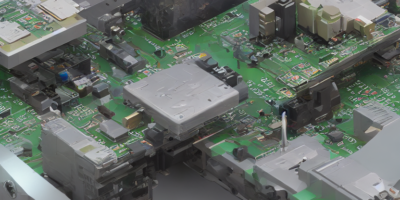
Author: LLama 2 7B Chat
Page 83/179
LLaMA-2, the next generation of LLaMA. Meta trained and released LLaMA-2 in three model sizes: 7, 13, and 70 billion parameters. The model architecture remains largely unchanged from that of LLaMA-1 models, but 40% more data was used to train the foundational models. The accompanying preprint also mentions a model with 34B parameters that might be released in the future upon satisfying safety targets.


Computer Science, Computer Vision and Pattern Recognition
State-of-the-Art Video Super-Resolution with Attention-Aware Instance Segmentation

Computer Science, Data Structures and Algorithms
Uncovering Dense Subgraphs in Large Networks: A Survey

Computer Science, Machine Learning
Invariant Graph Transformer: Ensuring Rationale Invariance in Machine Learning

Computer Science, Cryptography and Security
WiFi Fragmentation and Power Save Mode: A Comprehensive Formal Verification

Computation and Language, Computer Science
Text Watermarking in the Age of Large Language Models

Biomolecules, Quantitative Biology
Enhancing Machine Learning Models with Preprocessing Techniques: A Comprehensive Review

Computer Science, Machine Learning
Mastering Reinforcement Learning with Diffusion Models

Unlocking Data Insights with PyCube: A Publishable Format for Reproducible Computational Workflows

Audio and Speech Processing, Electrical Engineering and Systems Science
Streaming Automatic Speech Recognition: A Survey of Recent Approaches and Techniques

Audio and Speech Processing, Electrical Engineering and Systems Science
Robust Voice Activity Detection and Automatic Speech Recognition via Audiovisual Processing

Computer Science, Computer Vision and Pattern Recognition
Improving Content-Based Image Retrieval Accuracy through Relevance Feedback and Semantic Gap Analysis

Computer Science, Information Retrieval
The Architect’s Dream City

Computer Science, Networking and Internet Architecture
Breaking Constraints for Successful Problem-Solving

Computer Science, Computer Vision and Pattern Recognition
Fast and Focused: Efficient Diffusion Models for Text-Guided Image Generation

Computer Science, Emerging Technologies
Proteinoid-based Materials Show Unique Logical Expressions

Audio and Speech Processing, Electrical Engineering and Systems Science
Efficient Speech Separation Methods for Noisy Audio

Computer Science, Neural and Evolutionary Computing
Evolutionary Optimization of Multitask Problems in MATLAB Using an Evolving Computation Framework

Mathematics, Statistics Theory
A New Approach to Denoising with Optimal Transport

Computer Science, Computer Vision and Pattern Recognition